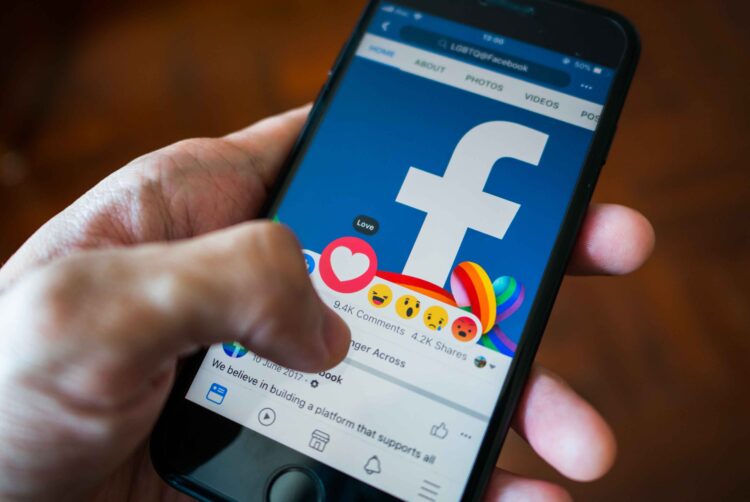Meta’s on a mission to become an advertiser’s one-stop shop

Analysis
“Over the long term, advertisers will basically just be able to tell us a business objective and a budget, and we’re going to go do the rest for them.”
Meta CEO Mark Zuckerberg outlined the tech giant’s aspiration in its Q2 earnings call this week, suggesting that the company’s development of AI will allow it to, in effect, act as a media and creative agency rolled into one for advertisers of all sizes.
“It used to be that advertisers came to us with a specific audience they wanted to reach, like a certain age group, geography or interests. Eventually, we got to the point where our ad systems could better predict who would be interested than the advertisers could themselves,” Zuckerberg said.
“But, today, advertisers still need to develop creative themselves. And in coming years, AI will be able to generate creative for advertisers as well and we’ll also be able to personalise it as people see it.”
‘Core AI’ at centre of growth story
Meta’s ongoing development of AI products was cited as a core reason for its above-expectations financial performance outlined in its Q2 results.
That specifically refers to what chief financial officer Susan Li called Meta’s investment in “core AI”, which is focused primarily on delivering ROI for Meta and its advertisers. This is opposed to investment in generative AI, which is more speculative — involving using chatbots to answer queries and creators using AI to speak on their behalf to fans — but also potentially much more groundbreaking in the long term.
Meta previously announced at the Cannes Lions that AI integrations in its advertising suite had created an improved return of advertising investment for marketers of 12% in two years. This is despite a number of complaints lobbed earlier this year that Meta’s Advantage+ ad platform has risen in costs despite reducing in effectiveness.
“Part of what’s so fundamental about AI is it is going to end up affecting almost every product that we have in some way,” explained Zuckerberg. “It will improve the existing ones and will make a whole lot of new ones possible.
“So it is why there are all the jokes about how all the tech CEOs get on these earnings calls and just talk about AI the whole time. It is because it is actually super exciting and it is going to change all these different things over multiple time horizons.”
Meta leans more heavily in to AI as it boasts double-digit rise in ROAS
Meta grew total Q2 revenue by 22% year on year to $39.1bn, of which the vast majority ($38.3bn) was ad revenue.
It is Meta’s fourth straight quarter of over 20% growth.
Net income jumped 73% to $13.5bn and the company reported 3.27bn “daily active people” across its suite of apps, which include Facebook, Instagram, WhatsApp and Threads. Meta no longer reports monthly or daily active users for individual products.
That said, Zuckerberg did reveal in the earnings call that Meta’s microblogging X competitor Threads now has nearly 200m monthly active users, up from the 175m announced in July. His multi-year goal for the platform is to attain 1bn monthly active users, although he conceded doing so may take some time. X, which still claims to have the most users of any comparable microblogging site, has never come close to obtaining such a figure, even when it was previously known as Twitter.
Zuckerberg did not outline when it may begin accepting ads, although some reports have suggested it could occur before the end of this year.
Keep an eye on eyewear
A topic investors were keen to understand more about was the popularity of Meta’s smart glasses, produced in partnership with Ray-Ban. In July, The Wall Street Journal reported that Meta was in talks to take a 5% stake in Ray-Ban parent company EssilorLuxottica — a substantial bet that its consumer eyewear product is growing in popularity.
“Ray-Ban Meta glasses continue to be a bigger hit sooner than we expected, thanks in part to AI,” said Zuckerberg.
He revealed demand is currently outpacing Meta and EssilorLuxottica’s ability to produce the glasses, but that Meta is “hopeful that we’ll be able to meet that demand soon”.
‘Phones had their time’: Meta UK chief Matras pushes smart glasses future
Derya Matras, Meta’s vice-president, UK, Northern Europe, Middle East and Africa, told a crowd at Advertising Week Europe in May that the tech giant is increasingly bullish on its smart glasses line as the consumer product of the future.
“Phones had their time for the last few decades,” she said. “The next form factor is going to be smart glasses.”
Zuckerberg referred to EssilorLuxottica as a “great partner” and suggested that the smart glasses are “well-positioned to dovetail well with the AI revolution that we are seeing and offering all kinds of new functionality there”.
Without addressing rumours of Meta’s potential purchase of a stake in the eyewear company, Zuckerberg added that EssilorLuxottica “has a lot of different products that we hope to be able to partner with to just continue building new generations of the glasses and deepen the AI product and make it better and better”, adding: “I think there is a lot more to go from here.”




